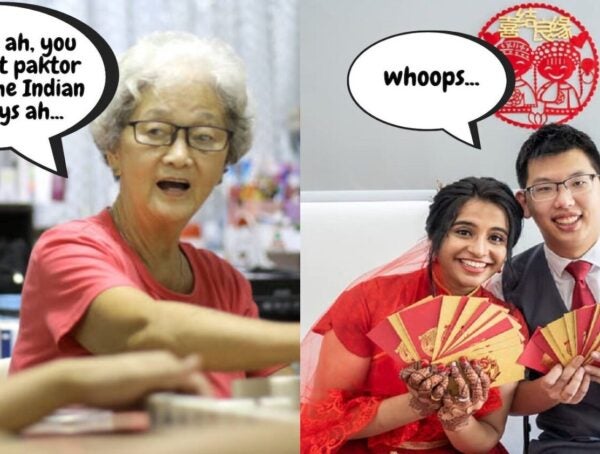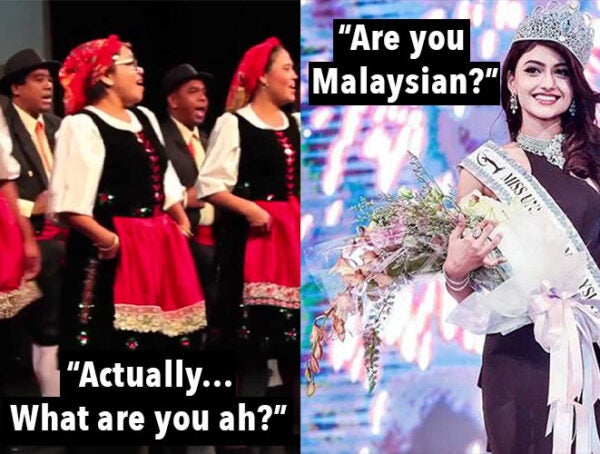Disclaimer: In Real Life is a platform for everyday people to share their experiences and voices. All articles are personal stories and do not necessarily echo In Real Life’s sentiments.
Please note: a Malaysian Indian sensitivity reader was hired to check this article before publication.
Malaysian Indians have repeatedly gotten the short end of the stick when it comes to racial relations in Malaysia.
In the past week alone, we’ve seen a politician hurl the k-slur at one of our national badminton players and a racist ad that made everyone cringe with its insensitivity. We’ve also witnessed the ongoing waves of frustration and anger at the deaths of Malaysian Indian men in custody – something that should not be happening at all.
These incidents are just the tip of the iceberg when it comes to the struggles Malaysian Indians face in our culturally rich nation. IRL spoke to five Malaysian Indians about their experiences.
1. “As I was walking they threw stones/twigs and stuff at me trying to get my attention as they continued calling me “k*ling”.”
Dinesh related an anecdote to me. It happened to him when he was a young schoolboy.
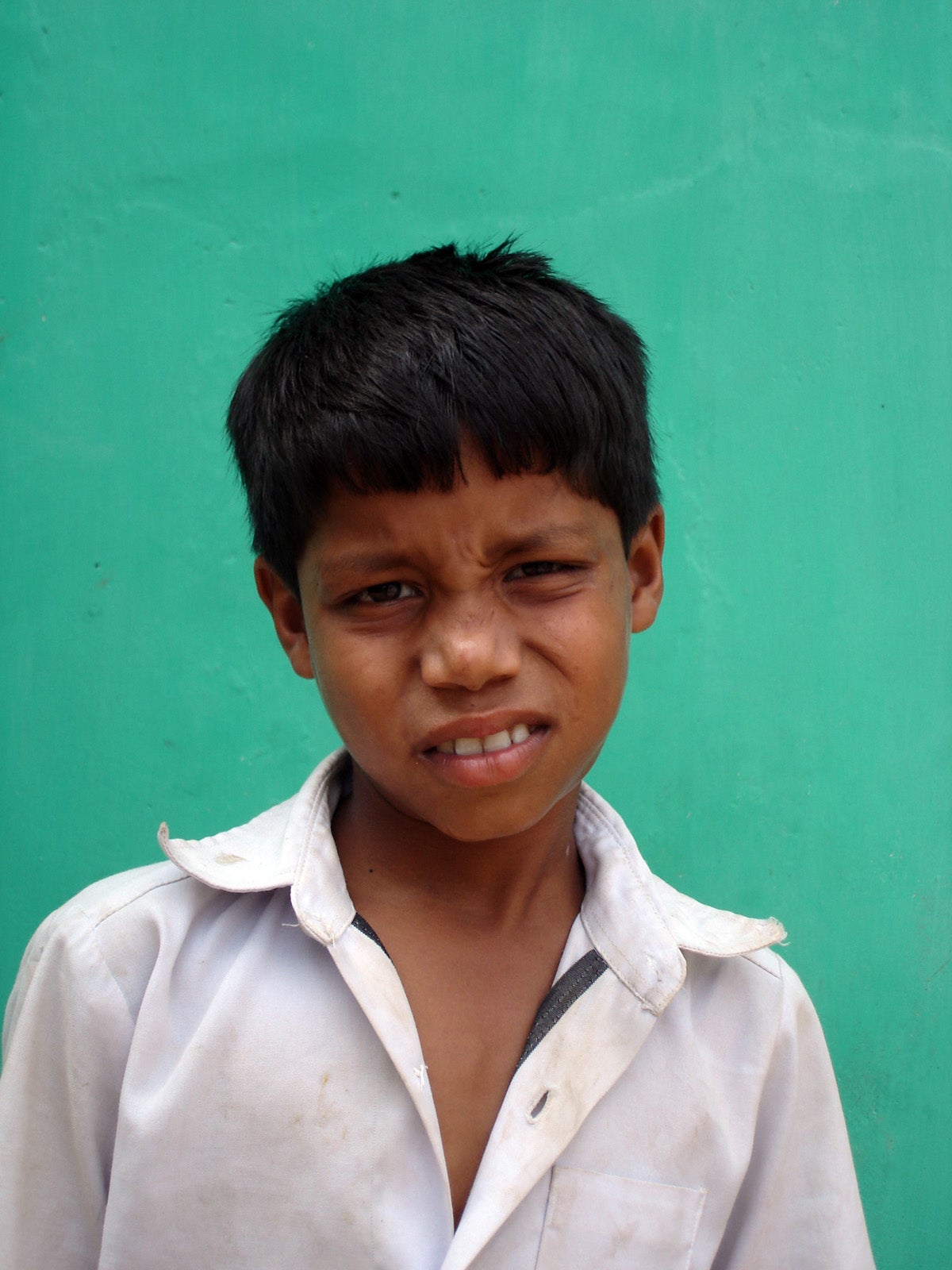
He was walking home alone after school one day, when he was forced to walk past a group of Malay schoolboys loitering around his route.
He said that he was dreading walking past them as he had already anticipated jeering.
Sure enough, they started calling him k*ling when he was within earshot.
Being alone, he didn’t want to do anything that could start a fight. He pretended to ignore their harassment while he walked past them.
But they only tried harder to get his attention. As Dinesh passed them, they began picking up little stones and twigs from the ground and started throwing them at him, all the while shouting the k-slur.
“It didn’t hurt physically, as these were just small stones and twigs that happened to be on the ground,” Dinesh told me. “But it definitely hurt emotionally… I don’t think I could ever forget it.”
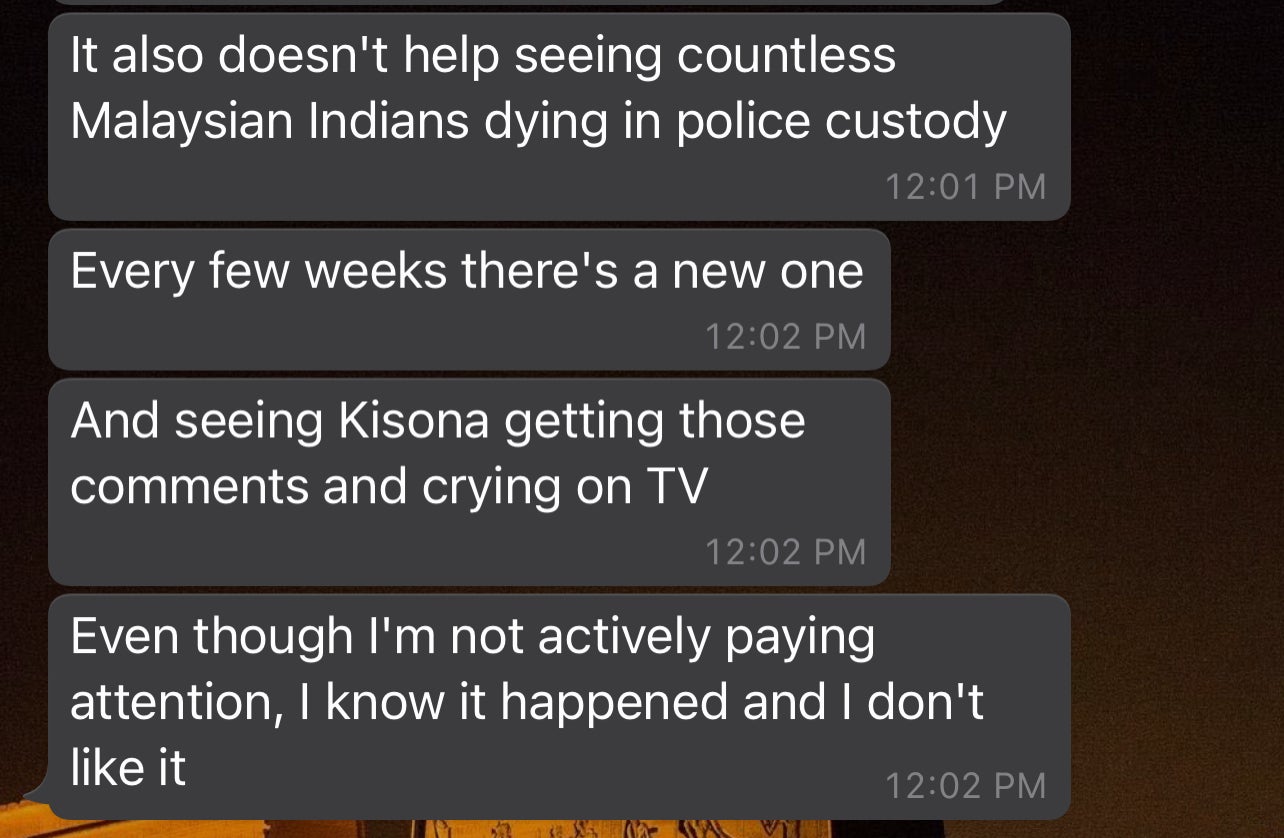
Dinesh also brought up that gay dating apps were rife with racism.
“I constantly see profiles on dating/hookup apps saying “no Indian” under their preferences.” He also experiences fetishisation from Americans and Europeans because of his ethnicity.
2. “When I told them I was Indian, property agents would immediately shut me down, won’t even offer to let me see the place.”
Christine spoke to me about her problems with renting property.
Even though she had the money to pay for the down payment, she was often rejected after disclosing her race.
Fortunately, her partner is Chinese and was willing to deal with property agents for the two of them. But whenever the both of them turned up to check out property, Christine would deal with what she called “the look”.

Christine also touched lightly on intercommunity issues. She had noticed that Indians who were primarily English speaking or fair-skinned were often indoctrinated into believing that they were better than other Indians.
She had suppressed her ability to speak Tamil because of it, and admitted that she used to believe that she was better than other Indians but has since changed.

3. “How many people grew up with their parents telling them the scary Indian uncle will come and take them if they don’t behave?”
Melissa had her own experiences with rental racism. Back when she was in college, she was searching for a place to live with her roommate, also an Indian woman.
She told me that even browsing for property was painful, as listings would flat out state “no Indians”.
Melissa also spoke to me about non Indians appropriating Indian culture.

She noted that there were many non Indians who were keen to participate in Bollywood type themes, but did not engage with Indians outside of that.
“The engagement with Indian culture is always divorced from the reality of Malaysian Indians.”
Melissa said that it was interesting to watch as she herself grew up compressing her Indian identity and culture to become more palatable to others.
“There’s no issue when it’s shared and you’re invited into it, in my opinion,” she told me, citing weddings or cultural events by Indians as examples. But obviously such things become an issue “when you want to make use of the items and aesthetics completely removed from the people that it belongs to, especially when those people are a very vulnerable minority.”
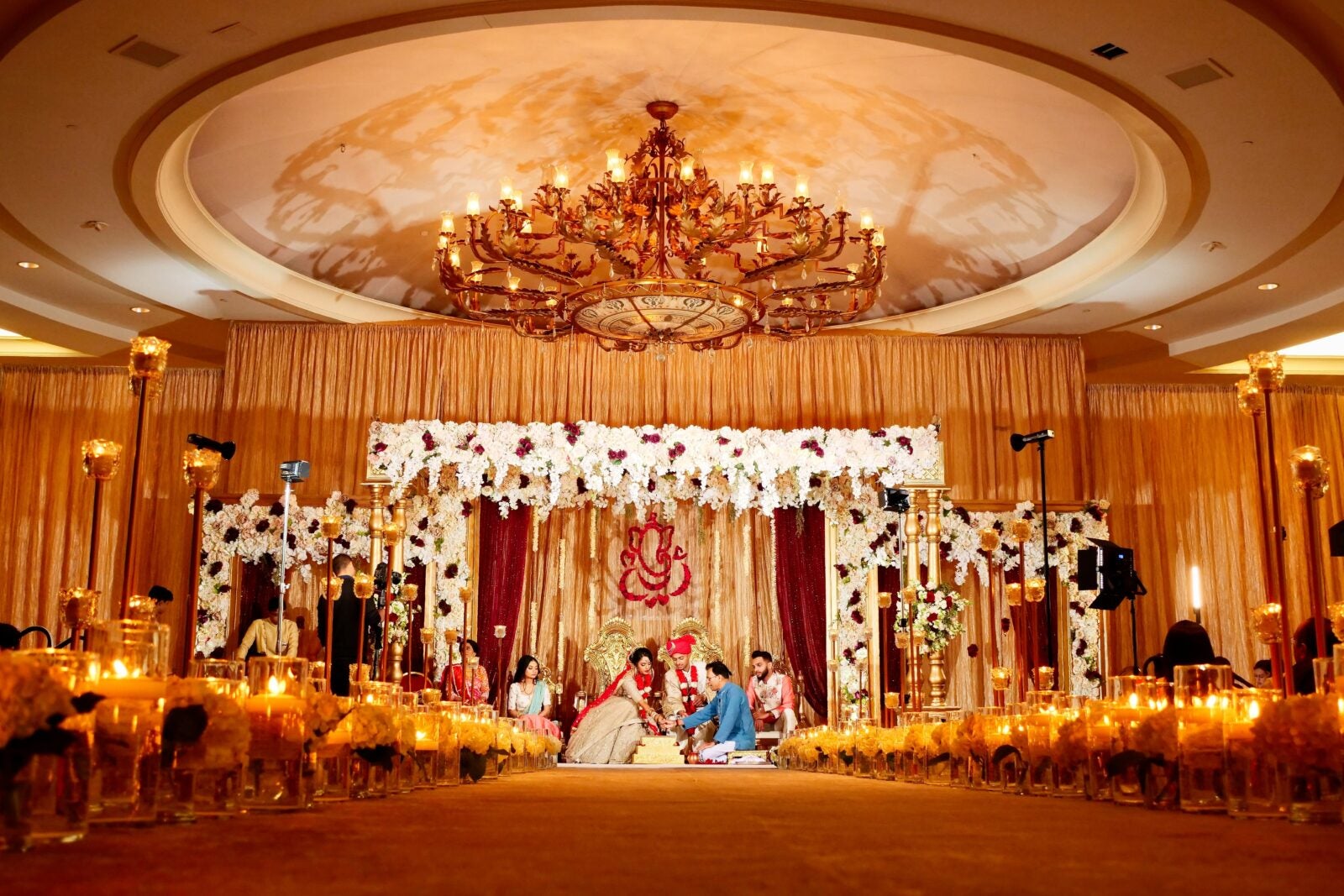
Another thing she brought up during the interview was that many Malaysians who were not of South Asian descent had grown up with the myth of the “ah pu neh neh”, the scary Indian man who will take children away if they misbehave. This myth is an example of how racism is taught from a young age – leading to all sorts of unfair assumptions and stereotypes.
Melissa told me that racism is often dismissed by “this idea that racism is just due to personal failings or interpersonal conflict”, which boils down legitimate complaints of discrimination to “why you so offended?”
4. “There was a clear difference in the way my lecturer treated me versus the way she treated the rest of my classmates.”
Prisha felt that coming from an English speaking family helped her to “blend in” better.
“Even my friends, whom I knew spoke in Tamil never really let it show that they knew Tamil. Because it was social suicide if they did.”
She said that she learnt “the hard way” to pretend she couldn’t speak Tamil. She struggled with social issues for two years before she finally stopped speaking Tamil, even at home. Sadly, it worked. “It was then I felt less alienated at school.”
Prisha shared an experience she had in college with a Ceylonese lecturer, who treated her differently for being the only Indian student in her class.

Prisha was made miserable by the experience. “The next 10 months was just her coming into class and saying racist things about Indians, and then turning to me and saying “No offence ah. But you know lah how Indians are”.”
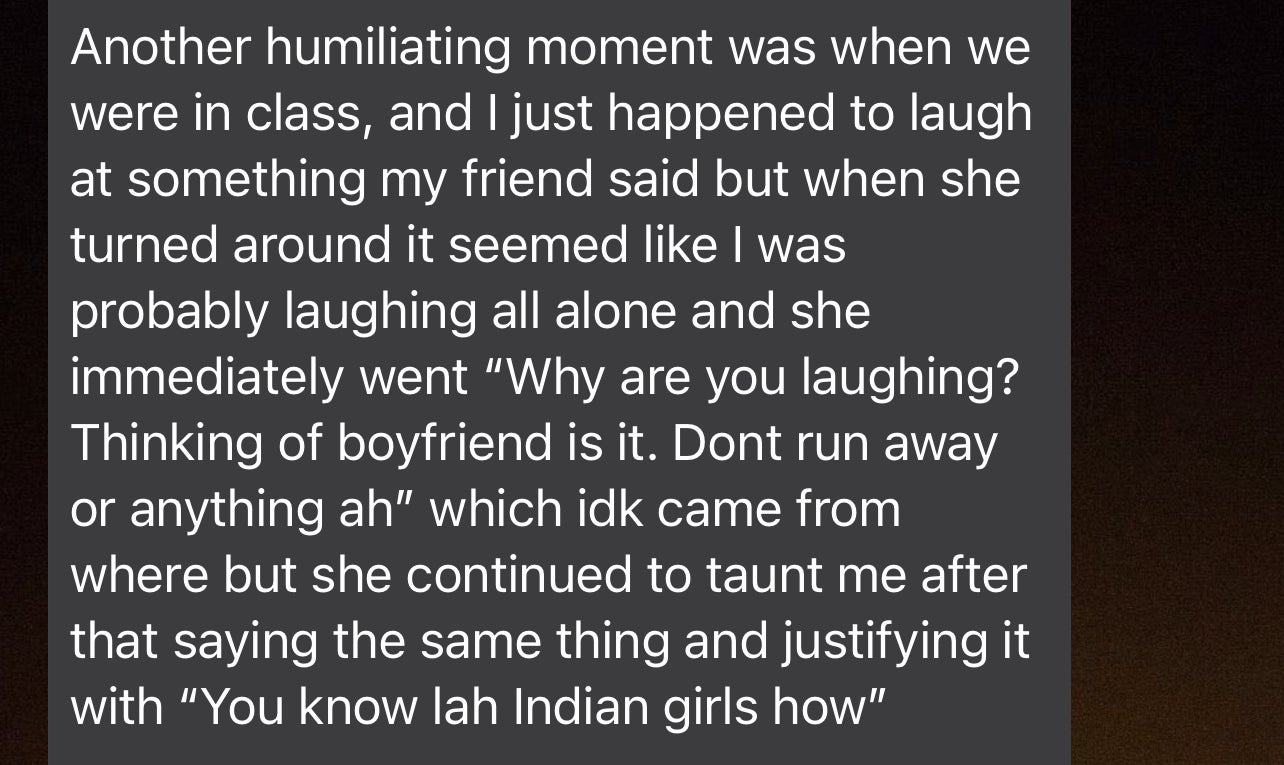
In the end, Prisha decided to ditch all of the lecturer’s classes and study on her own.
5. “Long story short, Indians are like… dirty.”
Naira was much younger than the others I interviewed, but she candidly agreed that like every Malaysian Indian she had been called the k-slur.
She said that the use of the derogatory term was very casual, and it was usually thrown around without understanding how it had been used to shut Malaysian Indians down.
“There was this one time when my schoolmates and I were having a conversation, they’d just suddenly say “balik India la k*ling”.

Like a few others, she said that there was definitely a difference between how Indians who spoke Indian languages were treated compared to their English speaking counterparts.
“They will look at you differently,” she told me. “As if you’re disgusting like that.”

“I’m honestly terrified to talk about this because I’ve always felt that I shouldn’t complain as so many others have it worse. My experiences with racism, while hurtful and humiliating at times, are milder than what a lot of my friends have been through.”
This was a sentiment I came across frequently throughout the interview process. The Malaysian Indians I spoke to expressed that there were others who had been discriminated against in worse ways and that they felt relatively fortunate with their experiences with racism.
One even declined to be interviewed by me as he felt that I “should look for someone whose struggle affected a bigger part of their lives”.
This only highlighted to me how pervasive and normalised racism is towards Malaysian Indians.
It isn’t fair to subject our fellow people to these situations in which their humanity is trampled upon under the heels of such systemic oppression.
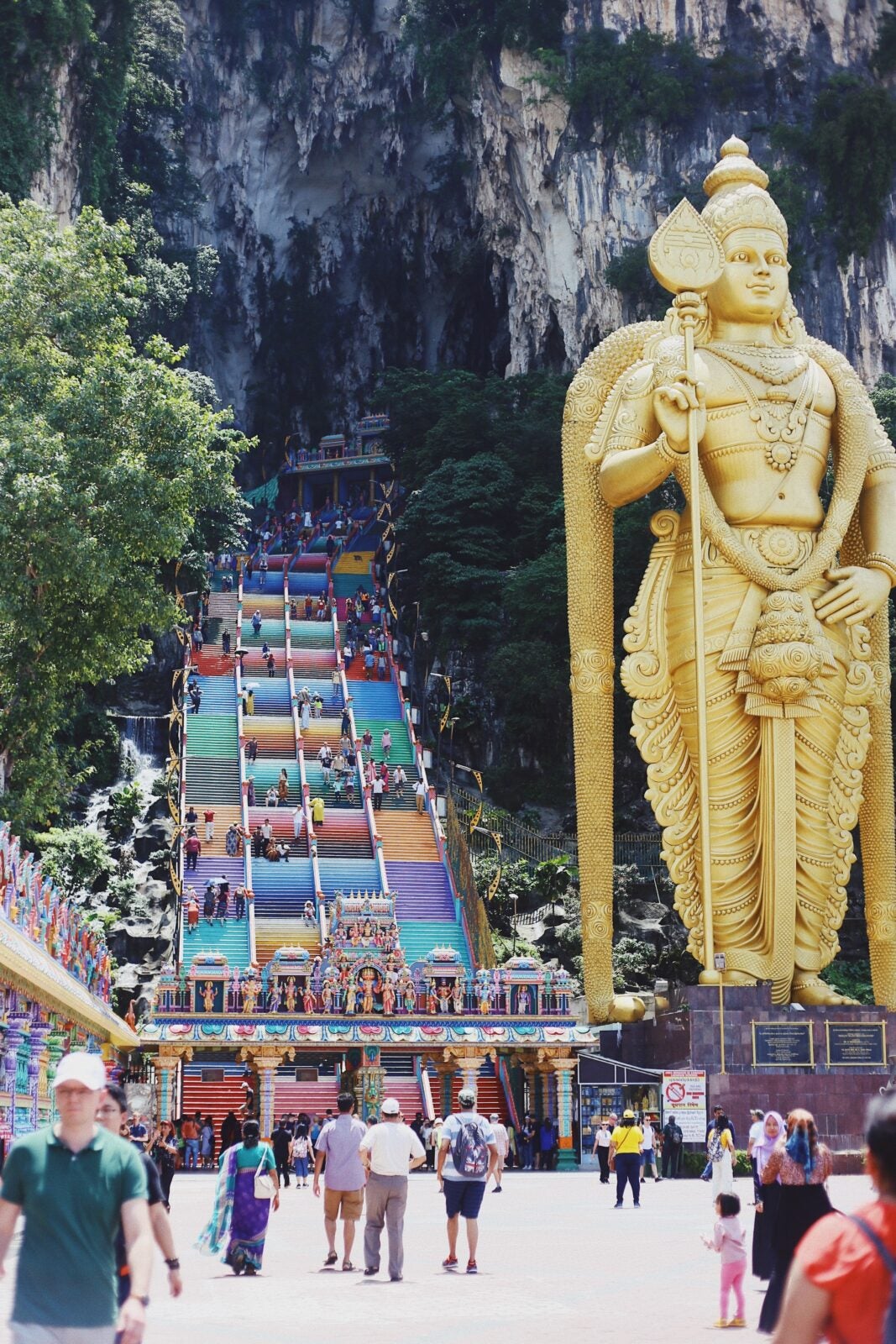
We must remember that the Malaysian voice includes that of our Indian community.
It’s more than past the time for non Indians to take a good hard look at our behaviour and identify the ways in which we contribute to the continued discrimination against Malaysian Indians.
For more stories like this, read My Grandmother Always Preferred My Cousin Over Me Because She Had Lighter Skin Due To Colourism and The Racism I Experienced Dating In Malaysia.
You might also like
More from Real People
‘A RM100 fee cost a company 5 years of revenue’ shares M’sian
This story is about a Malaysian who learned that bureaucracy can be defeated simply by not arguing with it.A billing …
‘I quiet-quit, upskilled, and tripled my salary,’ shares M’sian engineer
This story is about a Malaysian who learned that loyalty without leverage leads nowhere in the corporate world.After years of …
‘I did everything right, and it still wasn’t enough’ shares M’sian graduate
This story is about a Malaysian graduate navigating big dreams in a job market where a degree no longer guarantees …






